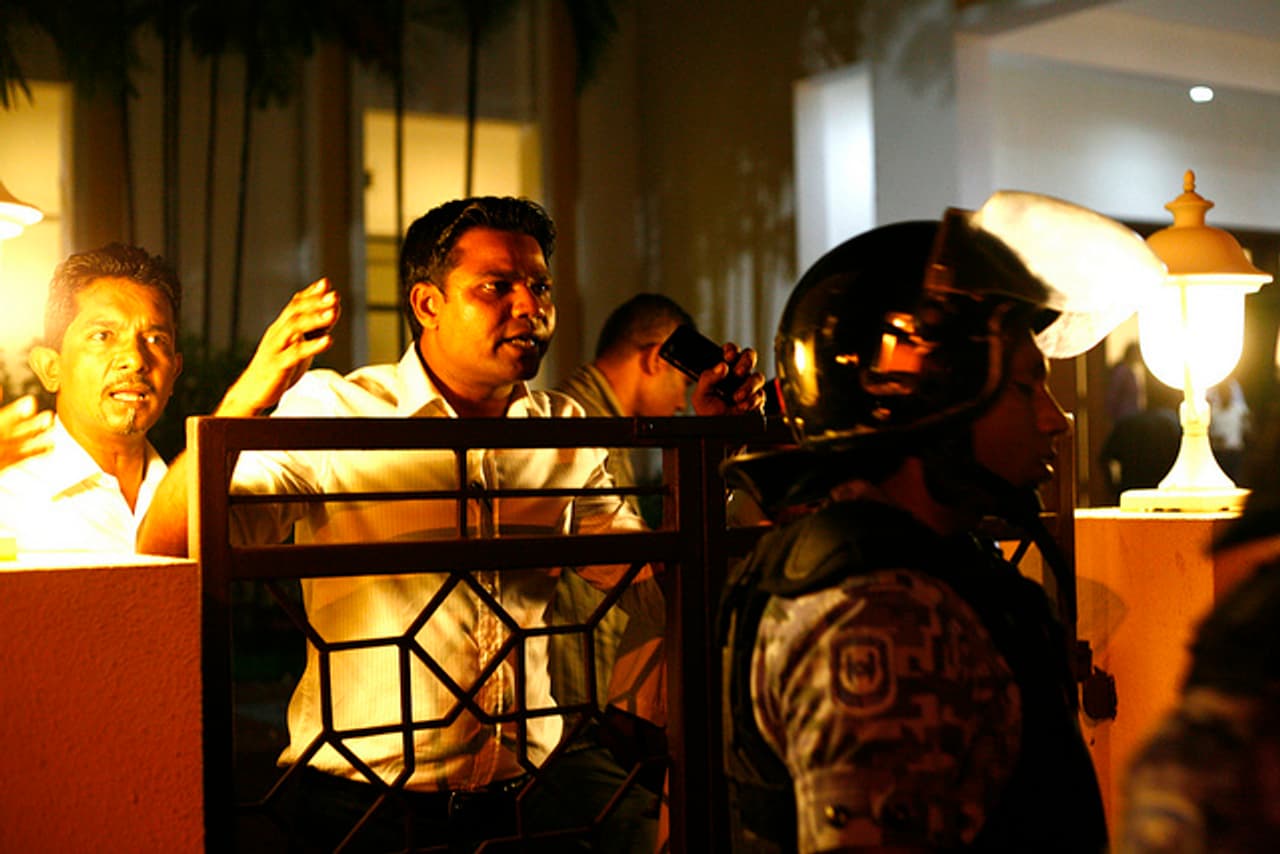
Maldives’ new PR firm under fire
A political protest in the Maldives.
The appointment of a US PR firm to represent the Maldives’ new administration has highlighted continued tensions in the country since the previous leader was ousted.
Mohamed Nasheed, the elected former leader, says he was forced to resign at gunpoint in a military and police coup on 7 Feb 2012.
The regime which replaced him denies there was a coup and has blamed Nasheed for wrongly arresting a judge, sparking protests that lead to his resignation.
In the weeks since the change of power, Amnesty International has denounced violence by the security forces against peaceful protesters.
Now the new government has hired an external PR agency to convince the world that the country is on the mend.
The Maldives Marketing and PR Corporation advertised on April 9 for an ‘international public relations agency to create a positive image of the Maldives and its tourism industry’, following ‘recent negative coverage’.
The advertisement proved divisive, prompting calls for a boycott of the tender. Undeterred, US PR firm Ruder Finn bid for and won the three month contract.
The firm has since been accused of ‘propping up’ the new regime by the former High Commissioner of the Maldives in the UK.
Farah Faizal, who resigned as the High Commissioner following Nasheed’s departure, said: ‘We’re all in favour of encouraging tourism – the country depends on it. But this PR contract has very little to do with tourism.’
She pointed to a requirement in the tender contract for the firm to ‘seed positive stories’ in the media and ‘leverage outcomes from relationships with governments, academics and NGOs.’
The European Commission is mentioned as a target, as are ‘academic institutions, individuals and think tanks,’ and journalists who write about international affairs.
Faizal also pointed out that a specialist travel PR firm, Rooster.co.uk was appointed in March to promote the country as a tourist destination.
‘If Rooster has been appointed, why do the regime also need Ruder Finn?’ she asked. ‘This is another example of a multinational lobbying firm helping to prop up a regime under the guise of assisting tourism.’
Ruder Finn has attempted to address concerns about its brief by promising to resign if a national inquiry into the change of power finds the new government took power illegally.
However the Commission of National Inquiry has been criticised by Maldivian NGOs, who want its mandate to be agreed ‘across the political divide’ and for international observers to monitor the inquiry process.
The Commonwealth Ministerial Action Group (CMAG) – a group of foreign ministers from a number of Commonwealth states including Australia and Canada – also released a statement criticising the Commission as insufficiently independent and impartial. It gave the government four weeks to reform the body or it would consider ‘further and stronger measures.’
‘The Commission is headed by the former defence minister of the man who ruled the Maldives for 30 years as a dictatorship,’ said Faizal.
Ruder Finn is not the first PR firm to accept the controversial Maldives brief.
Hill and Knowlton in the Maldives
UK PR firm Hill & Knowlton was hired by the government of the Maldives in 2004, when the country was led by the authoritarian President Gayoom. Tim Fallon, who had worked on Tony Blair’s 1997 election campaign, headed the account.
The firm’s work did not go down well with campaigners for democracy in the state, who bombarded Fallon’s blog with negative comments after he attempted to justify his actions.
The Daily Telegraph drew parallels with the New Labour apparatus. It described how a ‘strategic communications unit’ pumped out daily press releases announcing the dictatorship’s paper commitments to reform while opponents complained of arbitrary arrests and beatings.
But the Guardian noted that Fallon was credited in other circles with ‘steering the elderly Gayoom away from his Middle-Eastern strongman instincts towards the path of liberal democracy’.
‘One tangible result of Hill & Knowlton’s consultancy is the government’s sudden promise to enact a full-scale overhaul of the Maldivian political system, including judicial reform, free elections and a new constitution,’ the paper added.
In 2008 Nasheed triumphed in democratic elections – the first since President Gayoom assumed power in 1978.
David Hardingham of the UK-based campaign group Friends of Maldives told the Bureau: ‘On the whole I would say the involvement of Hill & Knowlton extended the life of the dictatorship for a few years but ultimately (and unwittingly) proved to be instrumental in its ultimate demise.’
Hill & Knowlton’s contract ended with the elections. It later emerged that the firm had amended the Maldives’ Wikipedia entry to remove statements critical of the government.





